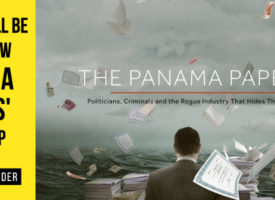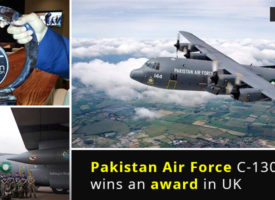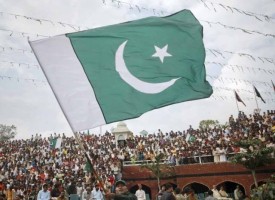There have been many calling out for a unanimously agreed platform for a more close-knitted Muslim world. Especially with Muslim countries undergoing extreme security situations, a desire to build a NATO-style Muslims-exclusive army seems like a desperate option, yet useful at a time of collective devastation descending over the Muslim world.
There is next to no doubt about the fact that Muslims are under a cloud of grievous curse, an unending agony of humiliation on one hand, while an unheard suppression and victimization on the other. There is version of so-called “Muslim” extremism manufacturing beasts in the form of Tehreek e Taliban or Lashkars in Pakistan, or other like notoriously famous Islamic state ISIS globally. Nevertheless there is Muslim community continuously denied basic principle of human rights in Myanmar,the right of self-determination in the case of Indian-Occupied Kashmir, or so to say freedom of expression in India. However, these two kinds of Muslims are highly interchangeable in the sight of a world cramming over the media rhetoric promulgating IslamoPhobia and hate-speech since more than a decade now. Among this confusion, the sufferers are portrayed as predators, and victims are demonized merely for their identity as Muslim.
As the routine criminals, terrorists or other law-breaking convicts alike are tried under the provisions of law, similarly innocent individuals who are marginalized, oppressed, and massacred over religious differences must be brought to justice, irrespective of their beliefs, the very virtue which is endorsed and widely propagated by the international law and human rights organizations including the United Nations. Ironically, today maiming of a certain group of faith-abiders is sidelined over the same television news channels that air hours of reporting on Osama bin laden, a story which itself is long redundant and has lost appeal yet grasps interest of the agenda-driven media outlets. It is therefore, a natural phenomenon when a certain group of Muslim thinkers would come up with a suggestion as desperate as creation of united Muslim army.
Like every developing idea has its cons, this one certainly has many, yet idea of independent Muslim army holds substantial supporting arguments. On the contrary, there are few cross arguments that suddenly come into one’s mind, while we see the condition of Muslim countries all around the world and the solutions that could be more pragmatic than a united Muslim army.
1. War in politics is basically failure of diplomacy
An idea of formulating an army is definitely a chocolate factory to a politically devastated charlie ,but to look at the world from a point of view of realPolitik,it could be termed a policy disaster. If Greece is under going economic crisis, does it make an excuse for an army take over from the other European countries in order to ease the building financial frustration?-A man suffering challenges of unemployment on ground would not find such a suggestion as illogical, yet a man with more stable conditions would consider re-evaluating economic policies for the country in order to fight the crisis sanely. Therefore, an idea of united Muslim army simply reinstates the fact that Muslim world at large has simply no other capability but to initiate a war with rest of the world. We need to re-evaluate the collective Muslim failure of building a united political or diplomatic front in order to fight immediate crisis Muslims are afflicted with today. As famous British politician Tony Bennonce said: War is the ultimate failure of diplomacy. While there seems to be less than no diplomatic measure from the Arab world to decipher the agony of Muslim sufferings of Rohingyas in Myanmar, or to become the voice of Kashmiri oppression, yet a political matter entailing power and personal interests in Yemen stands higher and concerning to the Arabs of rich oil wells and infertile brain cells. A united Muslim army is a failure of unity among Muslims without any secondary thoughts in a thoughtful mind.
2. Muslims are more challenged by Muslims themselves than an outside enemy
while united Muslim army for the very disintegrated Muslim world is a utopian concept of an Ottoman mind,it is also quite disturbing while watching our very own frankenstein monsters like ISIS,or so to say even Houthi Yemenis and Iranis in this case becoming apple of our Muslim represents in Arabia. Thus, formation of dis-united Muslim army would become another challenge for Muslim world. While targeting the domestic frankenstein monsters more hateful for the leading Arabs and others may left untouched less concerning to the Arab lords.
3. Domestic governance and policy issues
Behind all problems lie some mistakes, though to err is human, the first step to finding a solution is to recognize that a mistake has indeed occurred. As they say, charity starts at home, therefore, it is necessary that each individual, citizen of a Muslim majority country, under going crisis situation must play his role in order to fix problems at domestic level. For instance, Pakistan is afflicted with grievous security challenges at home, in such a scenario, by any practical viewpoint, any country should initiate a change right from home ground before heading overseas. Fact of the matter remains, Muslim countries in most cases have faced the horrors of their own ghosts, especially while leadership in Muslim countries either dictatorial or democratic have made self-serving policies rather public-centred policies. Thus, before heading northwards, one must follow the path that goes straight.
4. Pakistan the hero of the weak
With being nuclear power Muslim state, a professionally strong armed forces, Pakistanis naturally one of the most important members among the Muslim circle. It is both an advantage and a disadvantage, as we have witnessed in the case of Saudi-Yemen war. Over declining a union with Saudi-led forces attacking Yemen, Arab wrath became quite evident for the very first time. It is therefore, a challenge for Pakistan to deal with challenges overseas while much of the reserved crisis at home a real ready a question mark.
5. Generation war fares
Yes, we need to live with the world, and follow the means of warfare utilized in each given age at the particular time of crisis. We live in the time when sixth generation warfare has already come into play, while previous are in motion. A united army is a conspicuous move, coming from a tactless mind seemingly when the warfare today relies on alternative means of war. As a quote from Sun Tzus The Art of War goes: “All warfare is based on deception. Hence, when we are able to attack, we must seem unable; when using our forces, we must appear inactive; when we are near, we must make the enemy believe that we are far away; when far away, we must make him believe we are near”.
“Let’s quickly recap>> The first generation of the war depended on the power of man: the largest number of men eligible to spar. The second generation warfare depended on artillery and superior firepower, embodied by the World War I. World War II marked the third generation war characterized by air operations, sea and land synchronized. The evolved form of insurgency warfare attended during the Chinese Revolution (1925-1927) and later in Vietnam and Afghanistan has been called fourth generation. Fourth generation warfare was not wearing the US military or armed defense defending the limits set by the law of international armed conflict. Here fighters used unconventional strategies and objectives to fight against conventional military forces. What about insurgents or national liberation forces, armed fighters have used loose networks and not disciplined brigades had a great appetite to accept losses, and has no strict time limits to achieve their goals. So what is the fifth generation of the war?
It is loosely organized networks practicing violence and attacking the United Nations on behalf of a single cause, while being empowered by the political, economic, social and contemporary technology. The emergence of al-Qaeda or jihadist our aboriginal groups in different hues-TTP, LeT, Lej, Jaish etc. sixth generation means warrior in the absence of advanced conventional systems to lead the “distant war without contact”.
CONCLUSION
By reviewing these description regarding the aspects of warfares, we can easily configure the aspects of warfare today Muslim world is plagued with, including Pakistan. Thus, it is not the conventional use of power, and weaponry one must approach such tactfully designed evil befalling at such great magnitude, to counter such discrepancies we need a fully relevant plan of action, designed not by spur of the moment but by deliberation.
Indeed, a United Muslim Army is need of the time, an army which for eradication of blood-sucking political miscreants from each Muslim country. Undoubtedly, a United Muslim Army is call of the time, an army capable of forming a united diplomatic front in order to fight for the rights of Muslims all around the globe, and yes we need a Muslim Army that serves each an every Muslim, a human being regardless of his sectarian identity, his way of life or his religious orientation.








Isn’t it AlQuida/ISIS?!
It is a great step if united muslim army came into force firstly i will join this army becoz we kashimiri people supressed by india in all method great idea
It is therefore not surprising that they have become the target of attacks by those who would rather burn bridges than build them, and the subject of recent congressional hearings exploring their “radicalization. What myths are behind the entrenched beliefs that Muslims simply do not belong in the United States and that they threaten its security?
Dear to all, asslamo alaikum, i am working in malasia since 4 years. before some months malasia show documentary to all masjid regarding to burma and others, and the end ustaz say : Pakistan , bangla, indonesia are declare big country but nohting do nothing show any way justa name great/
Yes ! Its a myth , and despite the substantial supporting arguments it will remain a myth . Except the faith there seem to be no other compulsions which could possibly make the muslim countries a single united force . Look at the Middle East scenario. Saudi Arabia and Iran distrust each other , Syria , Iraq and Yemen are in disarray , and others are either too weak to have a say on matters of international importance or are autocratic . The African muslim countries are struggling to cope with their own problems , compelling them to think of their own survival . Pakistan and Turkey are the only countries which are in a position to take any initiative towards unification of the muslim countries . But , then , they too are facing internal and external challenges .Pakistan in particular is going through perhaps the worst period of its existence . Sandwiched between hostile eastern and western borders this country is fighting the monster of terrorism and is unable to focus on development and progress .
Under such circumstances is it possible to unite the armies of mulim countries and make them a UNITED MUSLIM ARMY ?